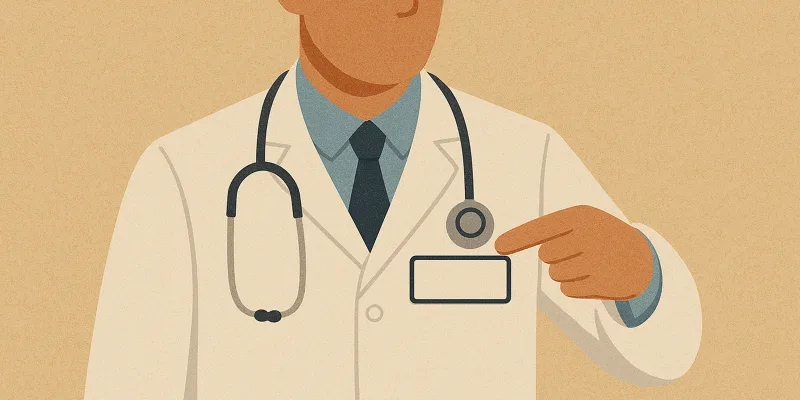It was typical modern New England winter weather — low 50’s and raining with a light drizzle, certainly nothing to dissuade a runner with a tight schedule. But the rain led me to add a windbreaker to my ensemble, and this would be my downfall. As I turned the curve of my Aarboretum loop, I began to feel hot — a clammy, pre-fainting kind of hot. When a 52-year-old woman feels hot on a run, it can approach a medical emergency.
I was wearing thick leggings, a long-sleeved running shirt from a race before the pandemic, and the offending windbreaker. Two out of three of my clothing choices were incredibly wrong. Something needed to be removed or I would have to call an Uber, or an ambulance, from the Aarboretum. With my dog.
Then I remembered that I was wearing a sports bra. And since sports bras are now considered appropriate outerwear clothing, all I had to do was stop, take off the windbreaker and my shirt, and put the windbreaker back on. I stopped, looked around. I heard two voices talking nearby, paused in their walk. A few other human-dog pairs approached from behind me. Sports bra or not, disrobing in public is not typical behavior for me. I tried to wiggle one arm out of my shirt while putting the windbreaker back on simultaneously. But everything was sticky from sweat and wet from rain, and I was holding a dog leash. I looked around again. People chatting within earshot and eyesight — check. Man walking his dog right toward me — check. And I did it; I took off the shirt, bared my sports bra, put on the windbreaker, tied the damp shirt around my waist, and continued my run.
It was incredible. My legs might still have been soggy, but the breeze passed right through my top, and the wetness felt soothing, not cold. And instantly, I thought of Brandi Chastain. People of a certain age remember Ms. Chastain, the gifted soccer player who scored the winning penalty kick in the 1999 Women’s World Cup Finals against China. What an amazing, once-in-a-lifetime moment. And then she had the audacity to remove her shirt in celebration and, perhaps, just maybe, she was also hot and sweaty (The day was described as “sweltering” — it was, you know, Pasadena in July.).
What was under her shirt was, of course, a sports bra. No nipples, in fact, you could barely even see her belly button. But this was too controversial for us back in the turn of the millennium. As these things usually go, Brandi was both celebrated and crucified.
And now, 25 years later, doused in the euphoria of my run, light rain, and having survived my nearly syncopal event, I felt a beautiful flash of gratitude — for Brandi, for things being different now, for progress. The sports bra is now an article of outer clothing and not underwear. Women who are not me dare to run in public, all the time, wearing just a sports bras because it’s cool and comfortable, and who can argue with less laundry. There will never be another sports hero vilified in the way that Brandi was.
But how do we think about progress? Because now, 25 years later, we can run in sports bras, but we also watch in horror as the clock turns back on our right to control our bodies. In 1999, I was an ob/gyn resident. Ob/gyn residency provides a multilayered education. You see the beauty of birth when things go well. And you see the horror when things go wrong in what can seem like a limitless variety of ways. You see life-threatening ectopic pregnancies and miscarriages, you see women crying as they terminate a wanted pregnancy so they can start chemotherapy, crying when you confirm that their water has broken much, much too early. You see a beloved baby turn out not to have a brain on ultrasound. This is called anencephaly. And if you decide to end this pregnancy, it is still considered an abortion.
Twenty-five years later, I have learned many times over that I will never get to the point where I have seen it all when it comes to the tragedies that can occur in the name of human reproduction and sometimes to a girl or woman just by being who they are. Fortunately, most people never travel this road themselves. They mean it when they say, “You must love your job. It’s so happy.” Not everyone can see what we see, nor should they have to. It is a burden we trade for the beautiful reward of being there when everything goes right. But because these stories often remain secrets, it is critical to listen to those who have lived them, either personally or secondhand by being the nurses, midwives, and doctors who take care of people during their reproductive nightmares.
In 1999, 42% of U.S. medical school graduates were women. In 2023, that number is nearly 52%. This too would seem like progress. And yet today, in many states, these new doctors are legally unable to offer an approved medical procedure for their patients. These are the doctors who will take care of our country for years to come, but in 14 states they would have no right to abortion if they needed it, and in six other states, their access would be severely restricted. The reality that the people making health care decisions for others don’t have the right to make this type of health care decision for themselves is stunning.
In 1999, we were shocked by a sports bra. And now we’re not. What we should be shocked by today is so much worse.
In what areas of medicine have you seen the most or least progress? Share your experiences below.
Dr. Jennifer Boyle is an ob/gyn who lives with in Boston, MA, with her husband and her three teenage children. In her free time, she runs, reads, and bonds with her labradoodle, Teddie. Dr. Boyle was a 2022–2023 Doximity Op-Med Fellow, and continues as a 2023–2024 Doximity Op-Med Fellow.
Illustration by Diana Connolly







